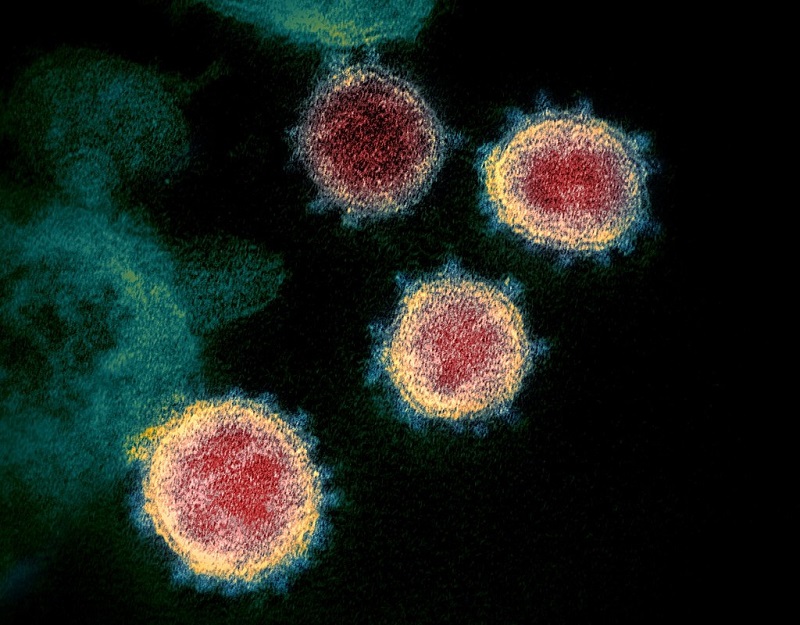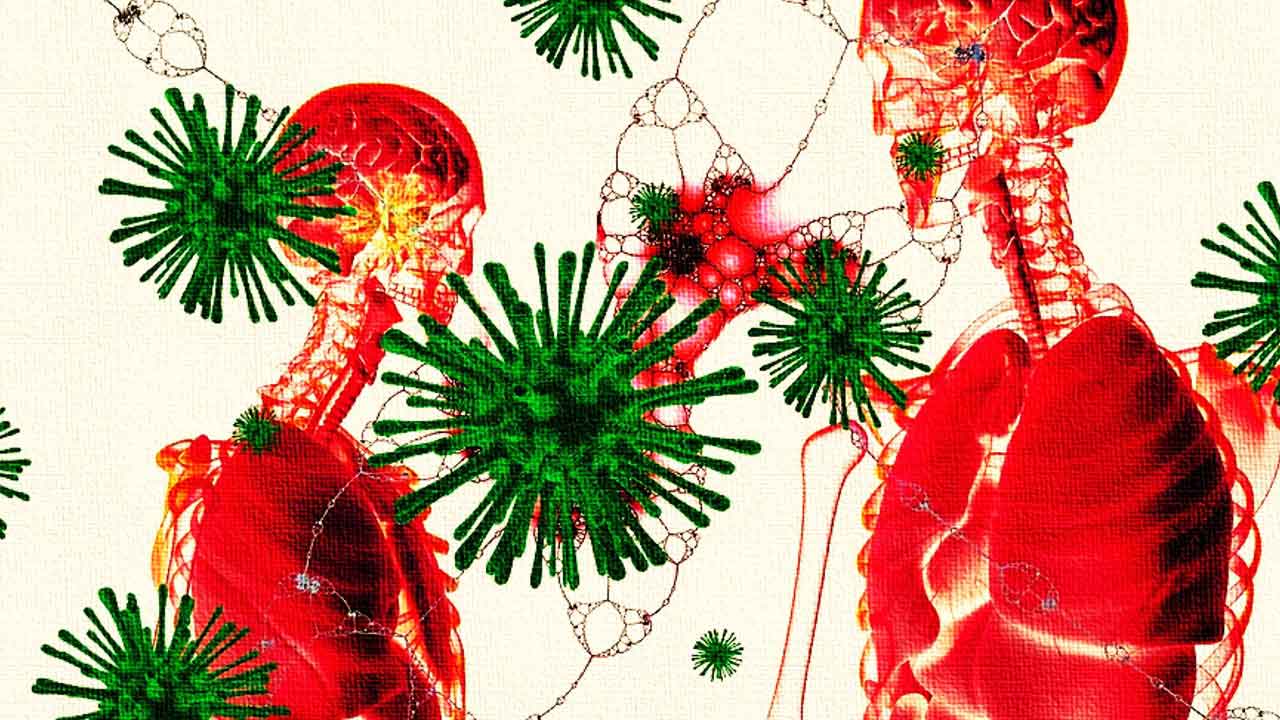What is the origin of coronavirus?
The recent COVID-19 pandemic began in the Chinese city Wuhan where the first ever SARS-CoV-2 case was reported in December 2019. It is yet not clear as to how the virus spread to humans. As per some experts, the first ever SARS-CoV-2 virus transmission to a human took place in the seafood and animal market of Wuhan.
Today, the term coronavirus has become synonymous to Severe Acute Respiratory Syndrome coronavirus 2 (SARS-CoV-2). However, in reality coronavirus is a group of viruses that cause illness ranging from a simple common cold to more lethal diseases like SARS, MERS, and COVID-19. Coronaviruses are commonly found in certain species of animals, like cattle and camels. However, animal to human transmission in coronavirus is rare. Some medical experts believe that SARS-CoV-2 strains came from bats, while one study suggests the likelihood of pangolins being the origin of novel SARS-CoV-2. However, in the absence of any officially confirmation — the origin of coronavirus remains unclear so far.
Who was the first case of coronavirus?
As per Hong Kong’s newspaper of record, South China Morning Post, a 55-year-old individual from Hubei province in China is likely to be the first person to have contracted COVID-19. The history of the disease — the patient zero or index patient can be traced back to 17 November 2019.
What is the difference between coronavirus SARS-CoV-2 & COVID-19?
No need to get confused between the two. It’s rather simple. The name of the virus is SARS-CoV-2 and the name of the disease is coronavirus disease 2019 (COVID-19).

What is the difference between COVID-19 & Flu?
It is true that both COVID-19 and the flu are respiratory illnesses and the transmission happens through person to person contact. However, there exist many differences between the two. For example:
| COVID-19 | Flu | |
|---|---|---|
| Symptoms | Experienced between 1-14 days. As per research, the median incubation period is 5.1 days. | Experienced between 1-4 days, in general. |
| Causes | Coronaviruses SARS CoV-2. It’s from a family of virus that cause respiratory illness | Influenza A & B |
| Speed of Transmission | Lower than Flu | Comparatively faster |
| Prevention | No vaccine available. Hence, social distancing recommended. | Through Vaccination |
| Treatment | Not available yet | Anti-viral drugs |
| Mortality | More deadly. 10 times more lethal than flu. | Milder than COVID-19. Not as lethal. |
What is the incubation period of SARS CoV-2?
The current estimation according to the World Health Organisation (WHO) suggests that SARS-CoV-2 could take anywhere between 1–14 days to incubate. The median incubation period, on the other hand, is around 5 days as per a new research taken up by Johns Hopkins Bloomberg School of Public Health. This basically means that most of the people who have been infected with SARS-CoV-2, will start exhibiting symptoms somewhere within 5 days of such infection.
What is the lifespan of SARS-CoV-2 outside human body?
A recent study published in The New England Journal of Medicine says that the time range for SARS-CoV-2 detection on different surfaces varied. Some major SARS-CoV-2 detection result of the study are as follows:
| Surface / Material | Duration |
|---|---|
| Aerosols | Up to 3 hours |
| Copper | Up to 4 hours |
| Cardboard | Up to 24 hours |
| Plastic/stainless steel | 2 to 3 days |
The results of the latest study have provided some vital information regarding the stability of SARS-CoV-2. It also suggests the possibility of people getting infected with virus through the air or on touching any contaminated surface/object.
How fast does COVID-19 spread?
Spread of any disease depends upon two major factors. First, the basic reproduction number or the R Naught, which represents the average number of people who could be affected by one infected person. As per current estimates, the R Naught value of novel coronavirus is 2.2. The number indicates that one SARS-CoV-2 infected person has the potential to infect 2.2 individuals on an average.
The Second factor is the “serial interval” or the time a disease takes to spread its infection between people. The serial interval of COVID-19 is estimated to be 5-6 days.
Both the factors are directly contributing to an exponential increase in spread of COVID-19 across the globe. It is due to this reason that the World Health Organisation categorised COVID-19 as pandemic in second week of March 2020.

Is there any vaccine, antidote or treatment for COVID-19?
Currently no vaccine or antidote or treatment protocol is available for COVID-19. The global research on vaccine is taking place at unprecedented speed. However, there is no guarantee of any success so far. It is also important to remember that immunisation is now required on a global scale.
If all processes work smoothly, a vaccine would still require 12 to 18-months of time to be developed.
On treatment front — as per the Centers for Disease Control and Prevention (CDC), the current treatments that is being offered to COVID-19 patients are based on the kind of care given for influenza (seasonal flu) and other severe respiratory illnesses, known as “supportive care”.
What is fatality or mortality rate of COVID-19?
As per the United Kingdom’s chief medical officer, Chris Whitty, the mortality rate of COVID-19 is less than 1%. The World Health Organisation on the other hand estimated it to be around 3.4%. Chris Whitty also said the that WHO’s figure was calculated only by including the officially confirmed patients as against the number of deaths. However, Whitty said that there are much more milder cases of COVID-19 that are not being taken in to consideration as the cases do not get to hospital.
What is coronavirus xenophobia problem?
According to Merriam Webster’s dictionary, the term xenophobia means fear and hatred of strangers or foreigners or of anything that is strange or foreign.
The sudden outbreak of COVID-19, which began in the Chinese city of Wuhan, significantly increased xenophobia against the Chinese people. This also include people of East Asian and Southeast Asians descent and appearance across the globe. Once the cases started growing in Europe and North America, tourists and emigrants from these areas also started experiencing xenophobia in the areas lesser affected by COVID-19.
Celebrities who got affected by Coronavirus SARS-CoV-2
Following table lists some of the celebrities who go affected with coronavirus disease.
| Name of the celebrity | Profession |
|---|---|
| Idris Elba | British Actor |
| Sabrina Dhowre | Canadian Model |
| Tom Hanks | American Actor and Film-maker |
| Rita Wilson | American Actress, Singer & Songwriter |
| Olga Kurylenko | Ukrainian-born French Actress and Model |
| Sophie G. Trudeau | Wife of Canadian PM Justin Trudeau |
| Rudy Gobert | French Basketball player |
| Donovan Mitchell | American Basketball player |
| Callum Hudson-Odoi | English Footballer |
| Kristofer Hivju | Norwegian Actor |
| Rachel Mathews | American Actress |
| Kevin Durant | American Basketball player |
| Charlotte Lawrence | American Singer, Songwriter and Model |
| Indira Varma | British Actress |
| Prince Albert | Reigning Prince of Monaco |
| Kanika Kapoor | Indian Singer |
| Daniel Dae Kim | American Actor, Voice- actor and producer |
| Marcus Smart | American Basketball Player |
| Sean Payton | American Football Coach |
| Andy Cohen | American Radio & Television Talk Show Host |
| Debi Mazar | American Actress and Television Personality |
| Prince Charles | Prince of Wales |
| Boris Johnson | Prime Minister of United Kingdom |
| Maria Teresa (died) | Princess of Spain |
| Adam Schlesinger (died) |
Singer |
References
Use the citation below to add this article to your bibliography
"Coronavirus / Covid-19: Questions and Answers." Dashamlav.com. Web. 27 July 2024. <https://dashamlav.com/coronavirus-covid-19-details/>
Dashamlav.com, "Coronavirus / Covid-19: Questions and Answers." Accessed 27 July 2024. https://dashamlav.com/coronavirus-covid-19-details/
"Coronavirus / Covid-19: Questions and Answers." (n.d.). Dashamlav.com. Retrieved 27 July 2024 from https://dashamlav.com/coronavirus-covid-19-details/
